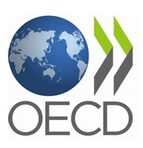|
On May 20, 2021, the US Department of the Treasury said that it has told the Steering Group of the OECD Inclusive Framework on BEPS that the minimum global corporate tax rate should be at least 15 percent.
The US Treasury reiterated that with the global corporate minimum tax functionally set at zero today, there has been a race to the bottom on corporate taxes, undermining the US’ and other countries' ability to raise the revenue needed to make critical investments. The Treasury proposed that that the global minimum tax rate should be at least 15 percent. Treasury underscored that 15 percent is a floor and that discussions should continue to be ambitious and push that rate higher. See Release On May 20, 2021, the OECD announced that the Conference of the Parties to the BEPS MLI approved an opinion that sets out a series of guiding principles for addressing questions about the interpretation and implementation of the MLI.
The principles, discussed and approved by the Conference of the Parties to the MLI, were drawn from public international law, the design of the MLI itself, and its drafting history. The MLI so far covers 95 jurisdictions and has been ratified by 65 jurisdictions. It is the first multilateral treaty of its kind, allowing jurisdictions to swiftly transpose results from the BEPS project into their existing tax treaties. The MLI became effective on January 1, 2021, for approximately 650 treaties concluded among the 65 jurisdictions. See Opinion of the Conference of the Parties to the BEPS MLI On May 21, 2021, the OECD published a case study highlighting progress made by Senegal to tackle base erosion and profit shifting, as a result of the full commitment of the political and administrative authorities to conducting tax reforms and driving change.
This series of tax and development case studies in selected countries demonstrates how governments in developing countries are addressing tax avoidance and evasion, assisted by the tools and capacity building services which the OECD and the Global Forum on Transparency and Exchange of Information for Tax Purposes carry out with the crucial support of their donors and partner organizations. The case studies cover different regions, income groups and topics – from tax base erosion and profit shifting and tax transparency to the joint OECD/UNDP Tax Inspectors Without Borders initiative. See Case Study on Senegal The OECD and the Cercle de réflexion et d’échange des dirigeants des administrations fiscales (CREDAF) signed a renewal of their Memorandum of Understanding (MoU) agreeing to extend their collaboration in promoting fair and efficient tax systems and enhancing the efficiency and effectiveness of tax administrations for a further three years.
Through this renewal of the MoU, which was originally signed in 2015, the OECD and CREDAF will continue to provide valuable capacity building and knowledge sharing in the areas of tax policy and administration, through joint seminars and other activities, building on the successful collaboration in the past. The joint efforts over the past years have been immensely beneficial for all parties involved. CREDAF has been closely engaged with the work of the OECD in many key areas and became an Observer to the Global Forum on Transparency and Exchange of Information for Tax Purposes in 2012 and to the Committee on Fiscal Affairs (CFA) in 2016. See Announcement The Indian Finance Ministry has notified the threshold to determine the new tax nexus based on significant economic presence (SEP) to tax profits of non-resident companies.
The concept of SEP was introduced in 2018, with the intent of bringing income of non-residents operating in the digital space within the ambit of Indian tax. The Government has now prescribed the threshold as INR 20 million and 300,000 users in this regard. The notification will come into effect from April 1, 2022. The US Internal Revenue Service (IRS) is soliciting comments concerning the burden related to completing a return by a US transferor of property to a foreign corporation.
Form 926 is filed by any US person who transfers certain tangible or intangible property to a foreign corporation to report information required by section 6038B. Written comments should be received on or before July 6, 2021. See Call for Input Singapore and Serbia have signed tax treaty, the Inland Revenue Authority of Singapore (IRAS) announced on May 3.
The treaty clarifies the taxing rights of both countries on all forms of income flows arising from cross-border business activities and minimizes the double taxation of such income. This will lower barriers to cross-border investment and boost trade and economic flows between the two countries, IRAS said. The full text of the treaty is available on the IRAS’ website. The treaty will enter into force after ratification by both countries. See Announcement |
Archives
March 2024
|
COMTAX ABC/o Ekonomiforetaget Baehring Dahl AB
Berga Alle 3 25452 Helsingborg Sweden |
CONTACTTel.: +46 46 590 07 70
E-mail: support(@)comtaxit.com |
INFORMATION |
© COPYRIGHT 1985 - 2024 COMTAX AB. ALL RIGHTS RESERVED.






